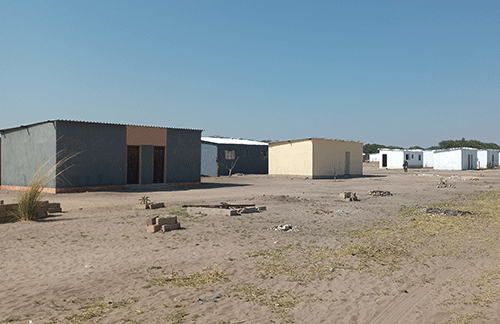NKURENKURU – While pushing for more local authorities to be introduced, Kavango West governor Sirkka Ausiku said a different approach must be taken to address multidimensional poverty in the region.
Ausiku made these remarks during the opening of the week-long rural development annual progress review and planning workshop in Nkurenkuru.
Ausiku said that the workshop, coordinated by the urban and rural development ministry, must answer why the region is classified to be the poorest in the land. “Why is the multidimensional poverty the highest in our region at 79.6%, although the region is blessed with a perennial river and fertile land; with green schemes as well as the Kavango cattle ranch that can create jobs, especially for our youth; with the opening of the Rundu Meatco abattoir?’’ Ausiku pondered.
She also questioned why 99% Kavango West is rural, with only one urban centre, Nkurenkuru town, and Katwitwi settlement, stating that rural areas should at least have more basic infrastructure like water provision, electricity, roads, communication network, schools and health facilities.
“Why can the region not have two or three town councils, village councils and more settlements? Why are all the growth points or big villages in the region not having electricity, including the recently declared settlements by Kavango West Regional Council?” she asked.
The regional council recently declared Rupara, Mpungu, Bunya, Ncamagoro, Katjinakatji, Tondoro, Nankudu, Ncuncuni, Ncaute and Kapako as settlements.
The governor also lamented the lack of road infrastructure development in the region, and expressed worry that communities still fetch water from the river, with each encounter coming with the risk of being attacked by crocodiles.
“The region on its own developed the regional economic investment opportunities booklet, where we identified various sectors for investment. The region’s priority sectors are agriculture, manufacturing, and tourism that need to be developed to address our developmental challenges, to change the livelihoods of our communities and grow our local economy,’’ said Ausiku.
The region has gone a step further to invite the Bank of Namibia to validate the sectors it identified. “The plea from the region is for the government offices, ministry and agencies, including government banks like DBN and AgriBank, as well as the Namibian Central Procurement Board to start making use of statistics and reports from Namibia Statistics Agency when making decisions on resource allocation for programmes and projects per region to achieve shared prosperity for all Namibians,” she said.
On his part, urban and rural development minister Erastus Uutoni said: “We must move away from equal distribution of funds to constituencies without considering the nature of initiatives to be financed. The regional councils must allocate funds to viable initiatives that have a greater impact.
“Concerning the design, implementation and funding of projects, we need to be accountable to our people within the framework of our social contract. Therefore, we must provide accurate and timely implementation reports of activities and carry out monitoring and evaluation at all times.”
Uutoni also reflected on the Regional and Constituency Development Bill which is in the pipeline.
“I am happy to inform you that the Cabinet Committee on Legislation has given the green light to the proposed Bill. It is now with the Ministry of Justice for final legal scrutiny before tabling it to Parliament… we, therefore, hope this important legislation will ensure ready and dedicated resources for constituency development,” he noted.
- jmuyamba@nepc.com.na


